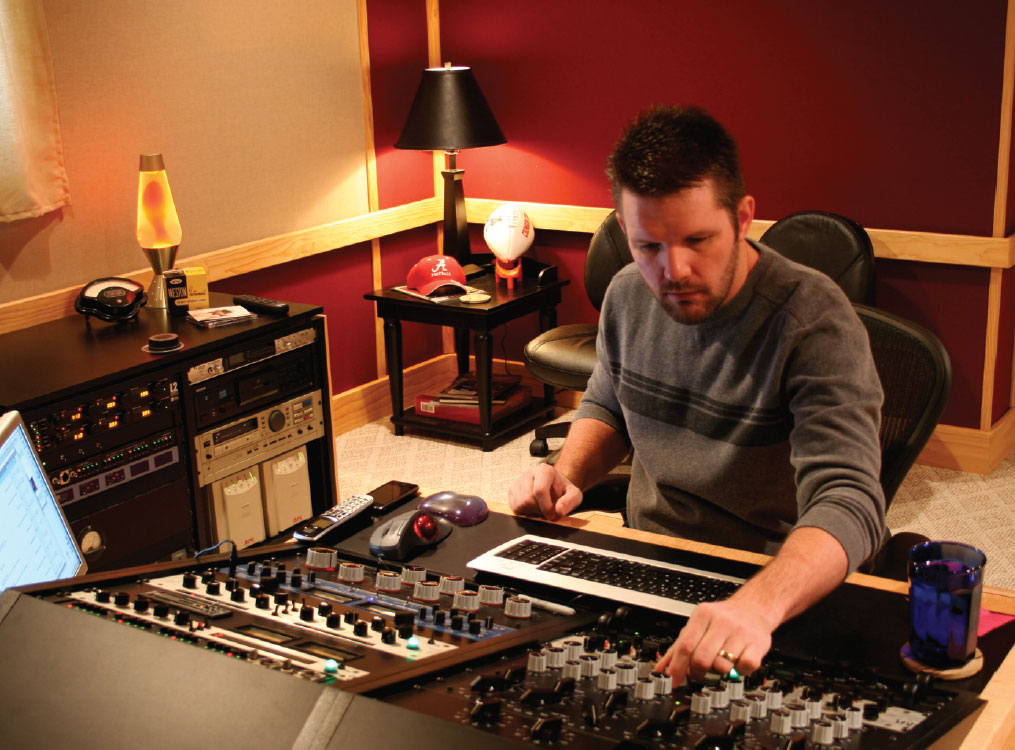Interview by Lorenz Rychner
Grammy Award winner Brad Blackwood works at Euphonic Masters in Memphis, TN and has mastered records for Maroon 5, Alison Krauss & Union Station, Black Eyed Peas, and Three Days Grace. We put the following questions to him, based on this premise:
“For a recording musician with their own home studio, someone who may stretch their budget to afford a professional mastering house, what advice can you offer about their preparation of the mix and the delivery of the files?”
- Final two-mix?: Make it sound as good as you can, as close to what you want your record to sound like, but don’t chase the volume of releases. I also recommend listening to the mix in multiple environments you are familiar with to listen for anomalies.
- To Stem or not to Stem?: I’m not really a fan of stems, outside of those used in TV or film. While they can allow fixes to be made in the mastering room, they force reliance on another engineer and also make the mastering engineer focus on individual elements instead of the big picture.
On Mastering
- Format? (Any DAW? Pro Tools? Or something else?): I generally recommend folks capture their mixes at 24 bits at the same resolution they recorded the tracks. 24-bit WAVs are by far the most common and easy for anyone to deal with—highly recommended.
- 16-bit CD-ready?: Many great records were mixed to 16-bit masters (DATs, for example), but 24-bit is preferred. The enhanced ‘foot room’ allows for potentially cleaner, quieter masters.
- What about even higher resolution than 24-bit?: Now that Pro Tools supports 32-bit files, we’re seeing some of those trickle in. I don’t really think there’s much, if any, benefit to a 32-bit word for storage, though for processing it’s a good thing. I’m not aware of many (if any) A/D converters around that even approach true 24-bit dynamic range.
- Compression? (“loudness wars…”): Compress all you want, but do it because you like the way it sounds, not to make things loud. Leave the loudness up to the mastering engineer; the louder you make your mix (via digital limiters, etc.), the more difficult it is to cut a clean, loud master, should you desire it.
- Delivered how? (Internet file sharing, hard disk via UPS, does it matter to you?): I tell clients to use whatever service they’re most comfortable with, though we have an FTP server available for those that prefer it. No benefit to shipping physical masters unless your internet connection is slow… or they’re analog (obviously).
- Do you like/prefer/hate having the artist by your side during mastering?: We stopped doing attended sessions for new clients almost six years ago—I find that the faster I work (not rushing), the better the records turn out. Efficiency is a big deal to me. And while the room sounds fantastic, no room is perfect—expecting a client to be able to give feedback while listening in an unfamiliar environment means a lot of backtracking, in my experience.
- What else?: Keep in mind that mastering is the polish on a fine paint job; try not to rely on mastering to fix issues, even if it means having the mastering engineer help dial in the mix before the session via feedback. Everything we do in the mastering room has a side effect—the less we do in the mastering room to get the same results, the better!
Brad Blackwood can be reached at www.euphonicmasters.com, where you can also learn more about the many projects he’s worked on. We thank Brad for his cooperation.


